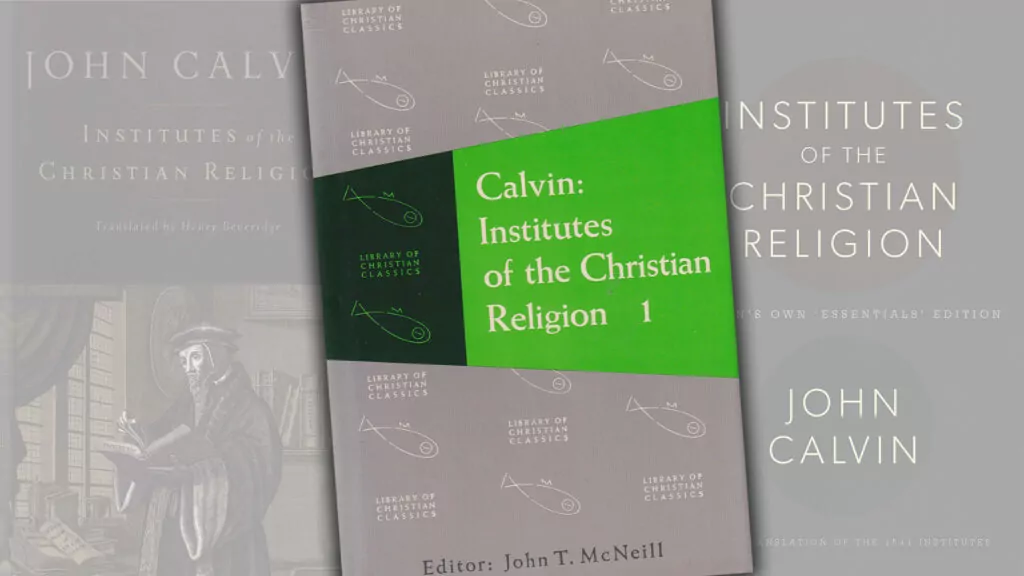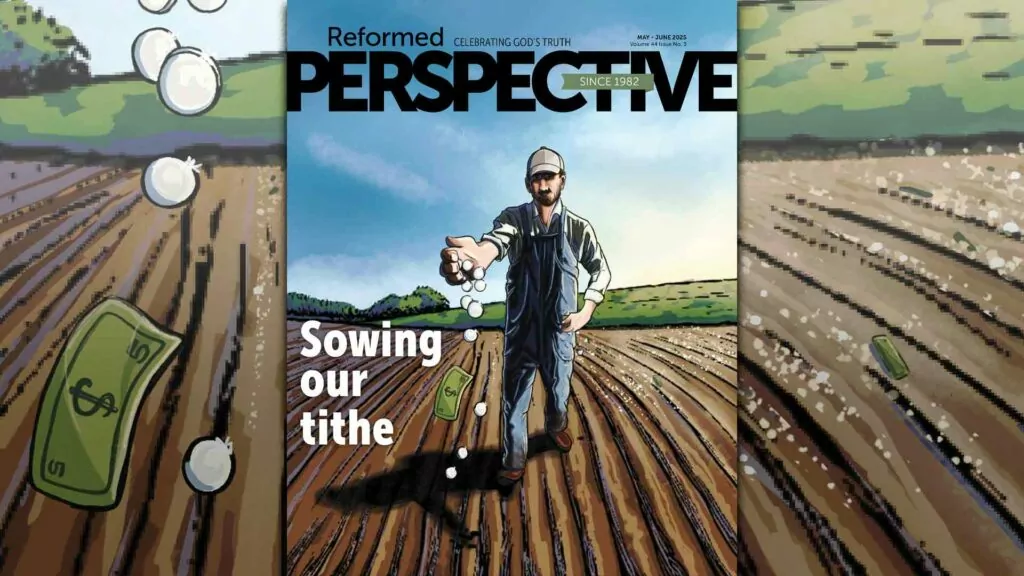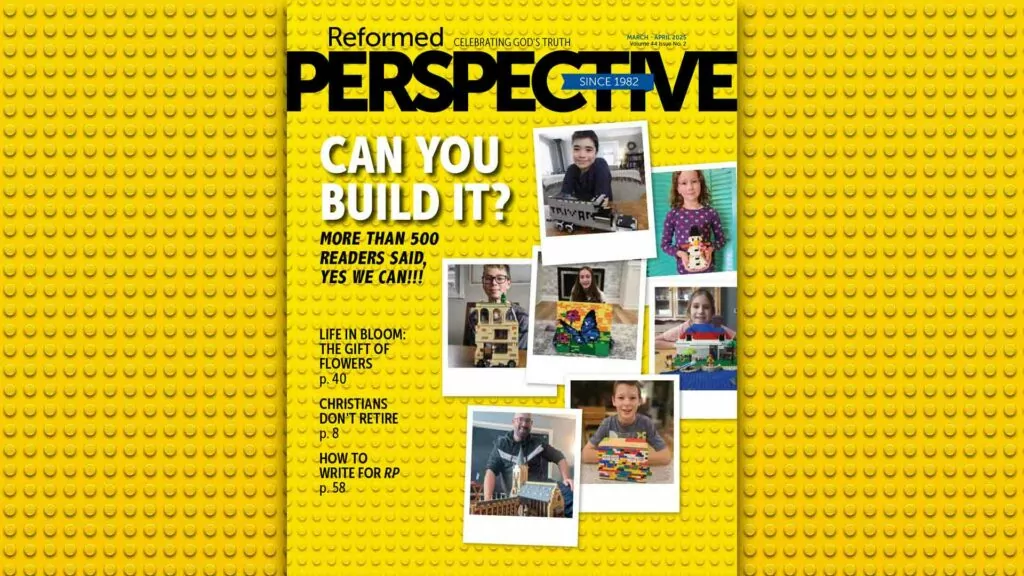Learning like an adult
When school is done your education isn't
*****
Students sometimes talk of graduation as being set free. We might be able to empathize, even as this prison-break analogy isn’t that complimentary to the “prison guards” who have been teaching you these last 12 years. But let’s run with that idea for a moment. If graduation means freedom, what will you now be free to do?
You’ll be free to never open a book again – you won’t have to read again if you don’t want to.
But we all should want to. The freedom a graduate has is not a freedom to avoid, but a freedom to take on. It is a freedom to be able to direct your ongoing education wherever you want it to go.
So, instead of a prison-break analogy, it’d be better to compare your education up to this point as being like a car ride. Early on, you were in a booster seat in the back, a little kid along for the ride, going wherever others decided to take you. God gifted you with some great guides so you’ve been taken to some fantastic destinations. But in these early years where you were going was decided mostly for you. As you got older, you started switching seats in the vehicle, moving up towards that front row. More recently, you’ve gotten to practice steering and choosing your own roads, though still with some adult supervision. Finally, when you graduate you’re going to be able to slip into the driver’s seat where you will have the freedom to go where you want to go. And along with that freedom will come the responsibility to make good decisions, make good time, and make sure you actually get where you want to go.
To push the analogy, when you graduate and slip into that driver’s seat you will also be free to pull over, shut off the car, and put the whole thing up on blocks. You can make the decision to never learn again. But why would you?
There’s a world out there to explore, contend with, and conquer, all to the glory of God. It is our calling and our privilege to go out and investigate sunrises, caterpillars, hummingbirds, craft beers, and whether there really is a better ice cream flavor than peanut butter chocolate.
Out in the world some might think that once they’ve graduated they can sit back, relax, take a long snooze, and be done with learning forever. But not God’s people. We know this is only the beginning and we can’t wait to get out there.
So what we want to look at is how to learn like an adult; we want to look at what it takes to be a life long learner. And we’ll do so by hitting three points:
1) Why we should be life-long learners
2) The qualities of a life-long learner
3) How to learn on your own
WHY WE SHOULD ALL BE LIFE LONG LEARNERS
When we’re setting out to do something, it’s always helpful to know the why behind the what. So why exactly should we all be life long learners?
1. Because God calls us to it
As David Mathis notes, “Teaching and learning are at the very heart of our faith. To be a ‘disciple’ means to be a ‘learner.’” We serve an infinite God who invites us to know Him better (2 Peter 3:18) through His Creation and through His Word. Because He is infinite, we’re never going run out of glories to uncover, and depths to dig into.
But not all of us enjoyed the classroom setting so do we have to be bookworms and academic sorts to learn more about God? Well, reading one book is an absolute must. God has revealed Himself in His Word, and if we refuse to open the Bible, then we’re showing we’re really not that interested in Him. But that doesn’t mean to be Christian you have to have been the sort who got straight A’s in all your. God promises to reveal Himself to any and all who seek Him (Deut. 4:29, Jer. 29:13, Is 55:6). In Psalm 32:8 the Lord promises: “I will instruct you and teach you in the way which you should go; I will counsel you with My eye upon you.” God is for everyone, no matter our grades.
2. To prep ourselves for the challenges ahead
In Proverbs God tells us that instruction is more valuable than silver, knowledge better than choice gold, wisdom better than jewels (8:10-11). And in contrast he tells us that those who “despise wisdom and instruction” are fools (1:7).
One reason we want to be life-long learners is because we’re going to be faced with a lifetime of challenges. We can take them on all on our own, or if we’re smart, we can ask for help. God gave us His Word, and He gave us brothers and sisters – both those alive today, and others who have long since passed on, but who can be consulted via the books they wrote – who we can ask for guidance.
The devil has a lot of tricks, but he always recycling old ones, so when we “talk” with folks who have gone before, we can learn from them how they took on challenges an increasingly hostile government, or what advice they gave on leading your family in devotions, or what passages of the Bible they most often turned to for encouragement.
If you’re looking to learn then you can benefit from the lifetime of experience your parents, uncles, aunts, grandparents, older siblings, elders and godly neighbors have lived and are ready to offer. You can learn from them, imitating them in their godliness, and also save yourself some pain by learning from their mistakes…instead of having to make all the same ones yourself.
3. To help and instruct others
Do you feel ready to teach your children how to pray? Do you know how to share with others the hope that is in? Are you ready to be an elder and go on home visits counseling younger couples on marital difficulties? Can you advise your congregation’s younger women how they can better love their husbands? If you’re asked, “Why should I be a Christians?” or “Why do you believe the Bible” or “Why do Christians hate homosexuals?” do you have a ready answer? Do you know how often and for what you should spank an errant child? Have you figured out how much to save for retirement?
There’s a lot to know so what a wonderful blessing it is when you’re younger that you have an older generation you can turn to for advice and instruction. But not too long from now, and maybe its already happening now, you’ll have people looking to you for advice. Maybe right now you can still rely on the older generation to do some heavy lifting, leading the fight, and all that. But at some point you are going to have to replace your parents. At some point you’re going to be the older generation. And wisdom doesn’t just come with grey hair. If you’re going to be a help to anyone, if you’re going to be a leader for your family, and in your church, you need to be learning how to do so now.
QUALITIES OF A LIFE LONG LEARNER
As we set out to become life-long learners, what sort of qualities should we be encouraging and developing in ourselves?
1. Go to the ant
One quality to start with is to ant-like. In the book of Proverbs two bad guys pop up repeatedly: the fool and the sluggard. The difference between the two comes down to how active they are: the fool mocks and scoffs God’s law; if God says to do one thing, then the fool does the very opposite.
Sometimes we can be troublemakers like this, but the more probable temptation for us is probably the sluggardly tendency. The sluggard doesn’t cause much trouble because he doesn’t do much of anything at all. His days are filled with Netflix binges, and long hours with his phone, whether that’s on Instagram or Snapchat, or endlessly checking the latest sports scores.
In Proverbs 6 Solomon tells this sluggard sort to “go to the ant” for inspiration and see how “it has no commander, no overseer or ruler” and yet there it is working hard. Nobody is telling it what to do. It’s just going out and doing it all on its own initiative.
This same advice is repeated other ways in Proverbs – in 3:3 we’re told to actively tie mercy and truth around our necks and write them on a tablet in our heart. Being ant-like means being self-directed and actively choosing to do what’s right.A life-long learner won’t drift, won’t make dents in the couch. He’ll decide what destination he’s heading for, and then plot out the steps it will take to get there from here.
2. Humble enough to seek correction
A life long learner also needs to be humble. In Proverbs, Solomon makes this point repeatedly: the wise love correction, and the fool hates it.
Whoever loves discipline loves knowledge, but he hates reproof is stupid – 12:1
Whoever ignores instruction despises himself, but he who listens to reproof gains intelligence – 15:32
Reprove a wise man and he will love you. Give instruction to a wise man, and he will be still wiser; Teach a righteous man, and he will increase in learning 9:9
The fear of the Lord is the beginning of knowledge; fools despise wisdom and instruction – 1:7
Again and again, we’re told, wise/righteous sorts love correct and fools hate it. So which are you?
Well, seeing as we’re still this side of heaven, all of us are a mix, maybe really good at taking feedback in one area, and in another, we just don’t want to hear what others have to say.
But if you look at something you’re really good at, it’s like this is an area where you welcomed feedback. I just found out that one of my uncles who has been playing organ all his life just signed up for organ lessons again. He’s still looking for correction and instruction because he wants to get better. I make my living as a writer, and I think my English teachers must have still gets the giggles every time they get another issue of the magazine – in high school I didn’t have obvious natural talents in wordsmithery. But I’ve gotten good at what I do precisely because this is an area I have frequently sought, and most often gratefully received correction. If you want to get good at something, you need to be humble.
It gets harder to take correction when we tie our own personal worth into something. I’ve coached kids at basketball, and if a kid really identified as being a basketball player, that sometimes made it harder for them to take feedback from their coach – correction was taken as an attack on their self-worth.
I know how that feels. Parenting is one of the bigger challenges I face, and when one of my kids publicly misbehaves, that is humbling, because then everyone can see I’m not doing the greatest job here – I want them to believe I’m a good parent, and I feel embarrassed when I get revealed as having some troubles. But I’m not going to get better if I don’t go looking for help. I am not a perfect parent, but I can be a godly one, trying, failing, repenting, and then assured of forgiveness, trying again. A life long learner needs to be humble enough to seek and appreciate correction.
3. The “Wow!” factor
A life long learner will also foster their sense of awe. As kids, we’d see a dandelion and in delight pluck it, blow, and watch all the white parachutes float up and away. As adults we see a dandelion and we just wonder where we’ve put the weed-killer.
For many adults, the only time that child-like sense of wonder kicks back in is when a baby is born: all those tiny toes and fingers wriggling gets our jaw to drop. But isn’t an adult every bit as miraculous as a baby? And yet, somehow we’ve become blind to walking in amongst all these miracles.
In Notes from the Tilt-A-WhirlNate Wilson reminds us of what we’re overlooking. Our world, he writes, is the kind of place
“…where water in the sky turns into beautifully symmetrical crystal flakes sculpted by artists unable to stop themselves (in both design and quantity). The kind of place with tiny, powerfully jawed mites assigned to the carpets to eat my dead skin as it flakes off. The kind with sharks, and nose leeches, and slithery parasitic things (with barbs) that will swim up you like a urinary catheter if only you oblige by peeing in a South American river. The kind with people who kill and people who love and people who do both. The kind with people who think water from the Ganges is good for them and people who think eating the heart of their enemy will ward off death, and others who think they can cure their own failing brains if only they harvest enough uncommitted cells from human young. This work is beautiful but badly broken. St. Paul said that it groans, but I love it even as its groaning….I love the world as it is because I love what it will be.”
If we’re not amazed, it’s only because we’re not paying attention. So let’s start.
LEARNING ON OUR OWN
So a life-long learner will appreciate wonder, appreciate correction, and appreciate ants too.
That’s why we should be life long learners, and what a life long learner should look like. But how do we actually go about learning on our own? Here are three suggestions.
1. Pick good teachers
A life long learner has to pick good teachers.
I remember reading, some years back, about a pastor’s wife who wanted to find out what the Bible said about homosexuality. She began her study by reading everything she could by “Christian” homosexuals – for two years she read only what they wrote on the topic, and it was only afterward that she started reading anything by orthodox Christians. B y then it was too late; she wasn’t willing to hear what the Bible really said.
As Solomon explains in Proverbs “Whoever walks with the wise becomes wise, but the companion of fools will suffer harm” (13:20) and “Leave the presence of a fool, for there you do not meet words of knowledge” (14:7). Or to put it more colloquially, “You are what you eat.” After that steady diet of trash, she’d made herself incapable of appreciating solid food.
When you’re at a Christian school your teachers have largely been chosen for you, but even then, with all the information coming at you from your phone, you make some choices about what sort of teachers you’ll have.
So what kind of a diet are you ingesting? Do you have good godly men and women providing insight? Or are you getting a steady diet of whatever it is the world is churning out?
If you want to find some good authors and bloggers and pastors to read and listen to, then the best place to start your search is by asking the good teachers you already have – your parents and relatives, your elders and pastor, Christian school teachers – who they would recommend.
I’ve included my own list at the end and one key point to remember is that, even with good teachers, they all have their own shortcomings and blind spots. We celebrate the wisdom of Luther every year again on October 31, but we don’t appreciate all he said, especially about the Jews. John Piper is a great resource, but we differ with him on baptism. C.S. Lewis had a real way with words, but he also believed in purgatory.
So you, as a learner, still have to assess and weigh what your teachers say – even your good and godly teachers – up against God’s Word. You have to use discernment even with them.
2. Ask good questions
And that brings us to point two. To be a good life-long learner you have to ask good questions.
Proverbs 18:17 says: “The one who states his case first seems right, until another comes and examines him.” To be able to discern fact from fiction, the opportunity for a good cross-examination can be key – we want to hear from both sides. The questions I ask most often are some version of these two:
how can God be glorified in this area?
how is the devil active in this area?
In whatever we do, we want to learn how it can give glory to God. Whether that’s our recreational soccer team, or a philosophy class at university, or our part-time fast food restaurant job, the more time and energy we’re devoting to an activity, the more thought and effort we should give to learning how we can, here too, worship God with our efforts.
The follow-up question is, how is the devil is active in this area too? If we’re heavily involved in our church it might not even seem like we’re in the middle of a spiritual war. But God tells us different. He says the devil is prowling “around like a roaring lion, looking for someone to devour” (1 Peter 5:8). So part of being a life-long learner is learning to see through the devil’s attacks. What temptation are you being confronted with here, what ideas are being pushed at you? It could be as simple as the temptation to laze off when the boss’s back is turned, but whatever it is, it’s important to remember that all of life is filled with opportunities for worship. And we need to remember, too, that the devil is trying to distract and intimidate us from doing so.
3. Read, read, read the Bible!
Finally, the most important part of being a life-long learner is diving deeply and regularly into God’s Word. In preparing for this talk I was struck by how much the Bible had to say on the topic and I was only scratching at the surface.
The Bible tells us about God, about the purpose behind His creation, and about our own purpose too. If we were to return to our driving analogy one last time, we could compare the Bible to our GPS system. This is our map, and if we’re going to be setting out on our journey as life-long learners, then the smartest thing we can do is look to it for guidance.
QUESTIONS FOR DISCUSSION
1. What are some other tips and strategies to help us learn on our own?
2. What other qualities should life-long learners foster in themselves?
3. In Ecclesiastes 12:12b we read the warning: “Of making many books there is no end, and much study wearies the body” and in 2 Tim 3:7 we’re told that it is possible to be “always learning but never able to come to a knowledge of the truth.” Is there a case to be made then, that we should not be life long learners? Why not?
Recommended resources
In keeping with the theme of threes, three of each….
Podcasts
Albert Mohler’s The Briefing
The World And Everything In It
CrossPolitic
Websites
ReformedPerspective.ca/resources
World.wnd.org
Creation.com
Authors
RC Sproul
Edward T. Welch
Nancy Pearcey
Specific books (for more recommendations see ReallyGoodReads.com)
Notes From the Tilt-A-Whirl by N.D. Wilson
Can I smoke pot? by Tom Breeden and Mark L. Ward Jr.
The Hiding Place by Corrie Ten Boom
This article appeared in the January/February 2020 issue under the title "Moving into the Driver's Seat."...






























































